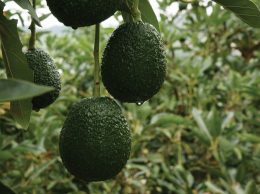Our view: Amazon’s bold bet will challenge tri-county farmers
It’s not immediately clear how disruptive the merger of Amazon and Whole Foods will be to the global food supply chain.
So far, the e-commerce giant has wreaked havoc in asymmetric directions. It disrupted the chain store concept for book sales but strengthened local vendors and sparked a surge of interest in book buying.
It has produced mayhem among middle market department stores like Macy’s but enabled specialized firms like Patagonia to thrive.
There is a discernable pattern: Amazon tends to wipe out commodity suppliers that can’t add a lot of value and create opportunities for specialized firms. Likewise, the level of automation and innovation that Amazon brings to the marketplace is quite impressive.
Thinking about food producers in the tri-county region, there are a lot of lessons to digest.
First, the combination of Amazon and Whole Foods is likely to boost demand for the fresh citrus, veggies and wines that are at the heart of the Central Coast agribusiness sector. Some of that demand is likely to come from consumers seeking organics and GMO-free products, an area where the Central Coast has a competitive advantage.
Second, Amazon is likely to support and benefit from the coming wave of automation in growing and picking fresh fruit and vegetables. This may take some of the pressure off of labor supplies but also put a premium on skilled staff who can manage crops and crop operations rather than pick fruit.
Whole Foods built its reputation on farm-to-table sourcing of products and its heavy footprint in California and urban cities in the West is going to be a boon to our avocado and citrus producers.
The challenges will be there, too. If Amazon is going to lower price points for Whole Foods, it will have to become a much lower-cost buyer, putting pressure on growers to cut costs or source products from Mexico, Chile and other places where costs are lower.
Amazon’s e-commerce operations will put pressure on margins in the prepared food business, an area where Calavo and Dole Food among others have made substantial inroads in recent years.
The bottom line is that Amazon doesn’t think small. That’s something for agribusiness giants and family farms to chew on in the months ahead.
FREEZE MINIMUM WAGE HIKES
There’s a rising chorus of protest over California’s steady march toward a $15 minimum wage.
Restaurants and some catering companies we know are simply shutting down or reducing operations in order to head off a steep decline in cash flow. Municipal and state governments are wondering how they are going to budget increased wages and overtime costs for parking lot attendants, seasonal workers and home health aides.
Looming over everyone are sharply rising minimum pay levels for exempt employees. And there is zero evidence of inflation that would justify the automatic pay hikes — further burdening employers, especially in the Central Valley.
If the legislature was really concerned about this they’d consider pausing the pay increases or changing the law so that future hikes better reflect inflation across the state.











